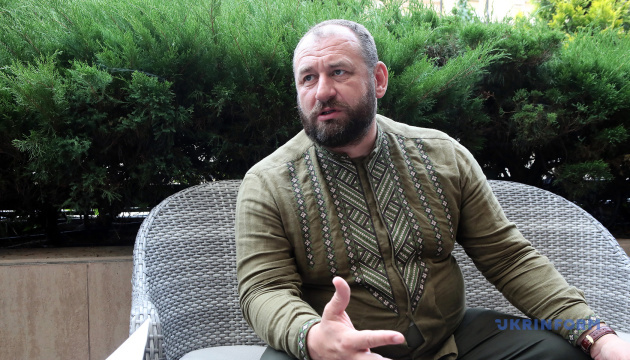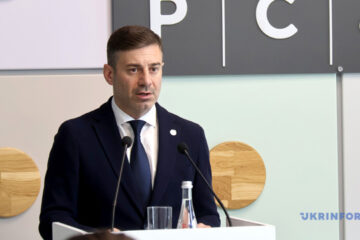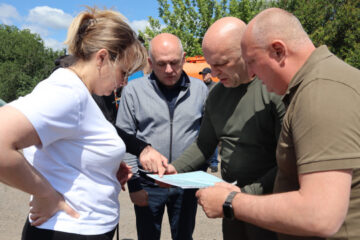We taped this interview with Fedir Sándor, the Ambassador of Ukraine to Hungary, when the diplomat was in Kyiv for an ambassadorial meeting. Before the interview time, Mr. Sándor phoned to say he would be a little late because he would be busy receiving a new aid shipment from Hungary, which he would then personally deliver to his comrades fighting in the Sumy region.
Volunteers from Hungary, at the request of Transcarpathian Hungarians who are fighting within different brigades of the Armed Forces of Ukraine, have been sending aid to front-line units since November 2022. This includes specialized chargers, thermal imagers, rangefinders, and drones for various applications among other supplies.
Mr. Sándor rejected the proposal to film the process of receiving and reloading the aid onto vehicles that would then be shipped to the frontline, saying his Hungarian friends did not really want to advertise it.
This small episode became a kind of tuning fork for our conversation, which was held against the backdrop of yet another worsening of relations between Ukraine and Hungary, and in the “dry residue” – normal human relations between Ukrainians and Hungarians.
We talked with Fedir Sándor, also known as the “professor from the trenches”, about the “pre-election nervousness” among Hungarian politicians, the likelihood of Hungary ending its blocking of the start of Ukraine’s EU accession talks, about the roots of anti-Hungarian provocations in Transcarpathia and about the ambassador’s dream of walking with Viktor Orbán in the city of Székesfehérvár.
IN A THOUSAND YEARS OF HISTORY, WE NEVER GOT INTO A SERIOUS CONFLICT WITH THE HUNGARIANS
– Mr. Ambassador, if one reads some news from the last few months – the spy controversy, Hungary obstructing Ukraine’s European integration, an arson attack on a Hungarian church in Transcarpathia, and more – one gets the impression that you now have to keep your defenses in a “diplomatic trench.” To what extent does this match the realities of your work in Budapest?
– Hungary is currently passing through an election period, and so politicians use various means, including “blows below the belt” to achieve the desired results.
Over the thousand-year history of our relations, we have not had any serious conflicts with the Hungarians.
We, it can be said, share a common DNA, because five Ukrainian princesses became Hungarian queens and gave birth to future Hungarian kings, including Bela III and Stephen III. So Ukrainian blood flowed in the veins of the Hungarian kings, and this is hard to deny.
And if we go back to the current days, then in all countries during the election process, any types of campaigning are allowed.
Indeed, some Hungarian officials cross the ethical boundaries, so we are attempting to warn them in a diplomatic form against this indecent behavior. To avoid switching to other forms, it is better for diplomats to sit at the negotiating table, because we and the Hungarians are and will be neighbors in the Carpathians, as well as in the EU and NATO.
– How can you explain the fact that Ukraine, despite sharing what you referred to as a “common DNA” with the Hungarians, has become more of a tool for modern Hungarian politicians to achieve their own goals?
– I think this is in part a consequence of the long-term lack of communication. For a long time, we had practically fully ignored our neighbors – Poland, Slovakia, Romania, Hungary, Moldova — looking more, instead, at France, Germany, and even the “big brother” – Russia — from whom we now have to fight back with weapons in hands.
There was not only no communication, but no vested economic interest either, we simply did not look in their direction.
Though Poland, for example, was the first country to recognize the independence of Ukraine, and the first foreign Ukrainian embassy was opened in Hungary on March 24, 1992.
Hungary was among the first five countries to recognize the Holodomor as genocide.
As a matter of fact, Russia has done and is doing everything it can to frustrate our communication with our Western neighbors, and even more so to divide us. This is one of the methods Russia is utilizing to impede Ukraine’s movement to the West and its return to its historical home, which is Europe.
Therefore, what matters most today is to renew the lost communication, because it is the lack of communication where many problems arise.
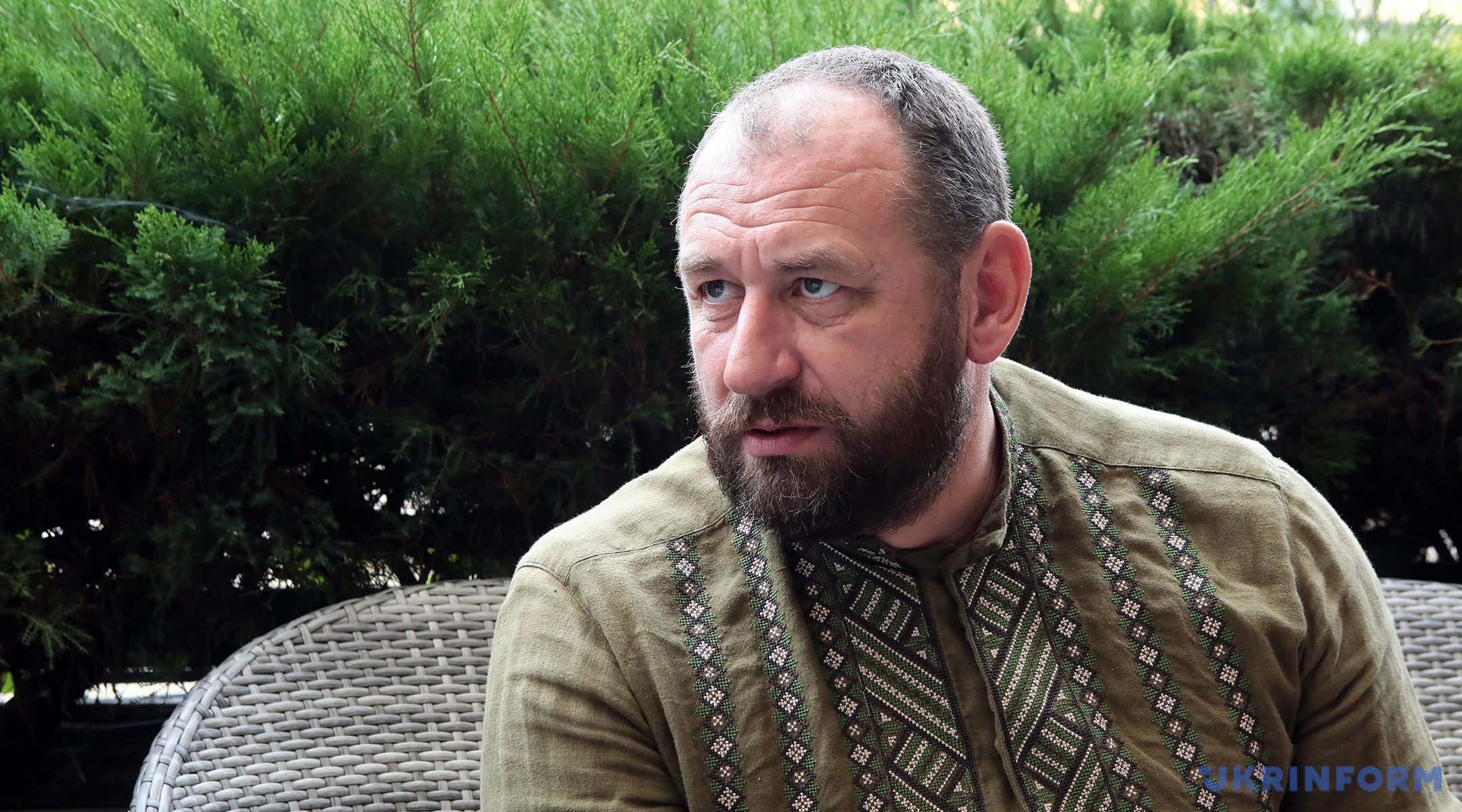
RUSSIA USES PROVOCATIONS TO AGGRAVATE CONFRONTATION
– How open is Budapest to communication now? You have been summoned to the Hungarian Foreign Ministry twice in the last month (on July 10, in connection with the alleged violent death of a Hungarian citizen due to the actions of the military enlistment office staff in Zakarpattia Oblast, and on July 17, over an arson attack on a Hungarian church in the village of Palad-Komarivtsi and anti-Hungarian inscriptions on it, – ed.). Did you have the opportunity to explain the Ukrainian point of view?
– Of course, I did.
– Did they accept it?
– Yes. If they didn’t, these stories would have had follow-ups. Of course, there were wave-like periods where they raised again, but the Ukrainian side provided its clear, one hundred percent strong arguments.
We know who is really behind these information insinuations, and the Hungarian side, unfortunately, often reacts to them too emotionally, without checking the facts.
But we must remain patient. The question is, who benefits from this? Only one side – Russia, who is about to drive a wedge between us, to fuel up conflicts not only on the battlefield, but also in diplomacy, economy, culture, human relations. After all, political cycles end, governments sit down at the negotiating table, sooner or later. But whether society will be able to overcome these cultural traumas is an open question.
To this end, Russia is escalating confrontation with the help of various provocative preparations. I would not be surprised if, for example, tomorrow we will hear that Ambassador Sandor killed Kennedy. This is their style, and with the help of artificial intelligence, you can now throw in any sensation, and someone will definitely believe it, even if it is absurd.
In such cases, we try to check everything right on the spot. Regarding the latest incident involving the inscriptions in an elevator, I contacted the police, the mayor of Mukachevo. He said: “We have been tormented already; we have inspected elevators in each and every apartment block and found no such inscriptions.”
These were photos from eight years ago – they were simply retreated from the archives and handed over to the Hungarian media through certain individuals.
We see where it all comes from – from the Russian embassy, from the media outlets funded by the Kremlin. They do not mind money: bots share fakes, and Hungarian officials react.
This was precisely the case involving an arson attack on the Greek Catholic church in the Transcarpathian village of Palad-Komarivtsi, where a compact Hungarian community historically resides: investigators completed their work on the spot at 9:36, and at 10:08 a Hungarian outlet published the news.
– And a response from the Hungarian Prime Minister was quick to come…
– When there is hype arising from everywhere, the reaction follows immediately: “Our people came under attack!”
This suggests that the whole situation was calculated – from provocation to reaction.
Russia, the aggressor country who is a stranger to the concept of morality, makes use of its dirty methods in different countries: in Poland – in connection with the Volyn tragedy, in Slovakia – in connection with the Ruthenian issue. The idea is the same everywhere: Ukrainians should be at loggerheads with Hungarians, with Poles, with Slovaks. But we must keep out head cool.
– So, you think that representatives of the Hungarian authorities are simply too emotional, don’t you?
– I said at the very beginning of our conversation and will emphasize it again: the election period is currently underway in Hungary, the situation is very tense, Ukraine has been made the topic of these elections and is being dragged into the election campaign in every possible way, and the Russians are gambling on this all.
This is the situation where we don’t have to “shoot from the hip” but instead should keep our head cool and take into account our national interests. Our emotional response to all these political manipulations will only facilitate anti-Ukrainian forces in this situation that will turn against us.
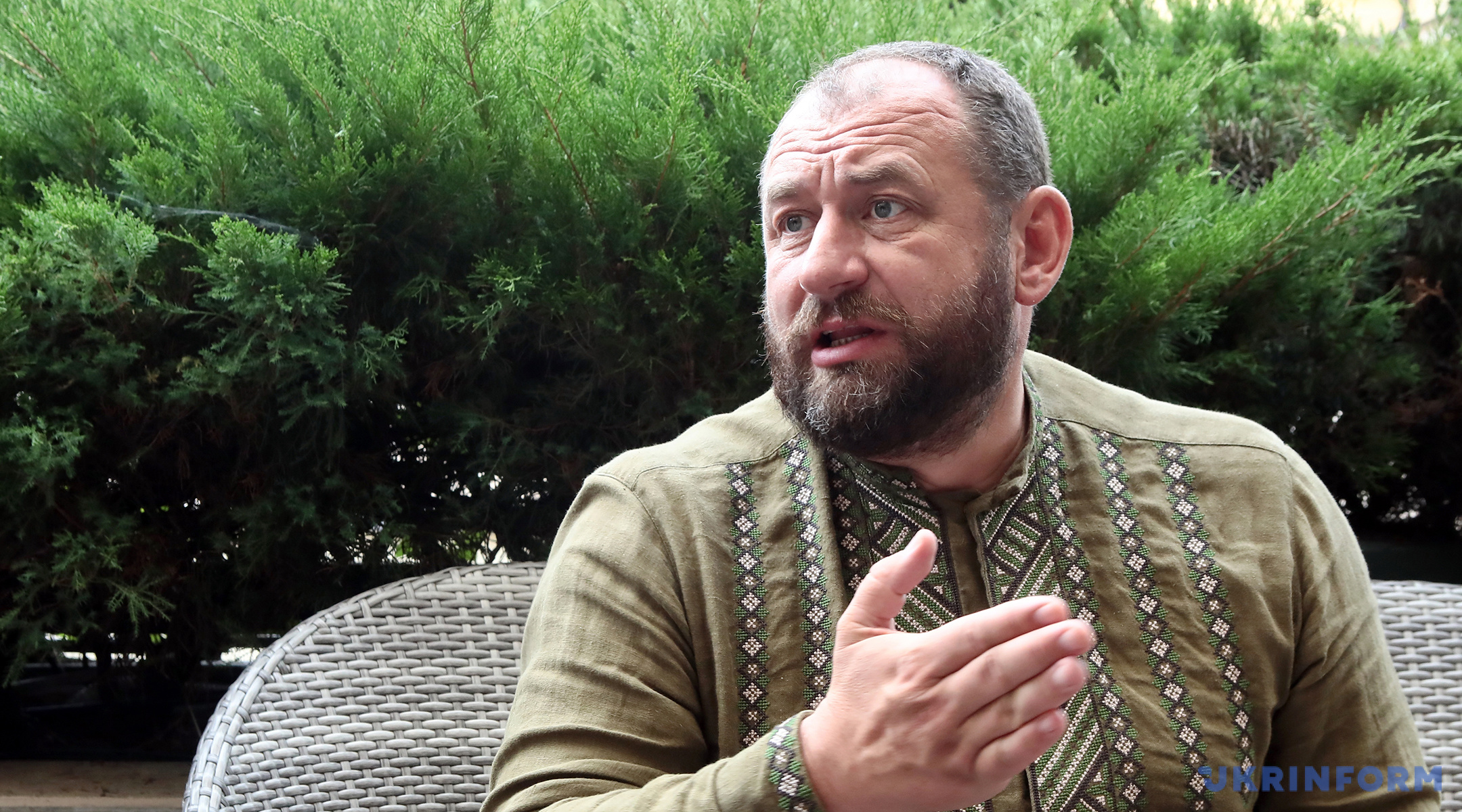
IF UKRAINE AND HUNGARY HAVE NOT YET FOUND COMMON GROUND ON CERTAIN ISSUES, THIS SHOULD BE FIXED ASAP
– Is it possible to change Hungary’s stance on Ukraine’s accession to the EU?
– Definitely yes. Ukraine, in particular the Ministry of Foreign Affairs, is actively working on this.
Of course, there are certain specific factors, and the main one is the election period.
– Does that mean to say that our movement towards the EU will be put on hold until next April?
– Regardless of the current position of the Hungarian side, we must focus on our goals and move on.
Moreover, no one lives in isolation in the modern world. Everyone depends on basic things – energy resources, financial flows, socio-economic support. And the levers of influence are all in the hands of the G7 countries.
– What can we do to stop Hungary obstructing the start of accession negotiations?
– The President has outlined several key priorities. First of all, it is good neighborliness. For example, for three years we did not have a Ukrainian ambassador to Budapest. Now we have one. I am not talking specifically about myself, but about the fact proper, because this is crucial not only formally, but also as a sign of political will.
Second is continuous dialogue. We have to sit down at the negotiating table, hold regular consultations, and be ready for reasonable compromises.
Additionally, we have to look for new ways for closer diplomatic relations: conclude new agreements, sign memorandums, and create tools for interaction that have not existed before.
If Ukraine and Hungary did not reach an understanding on some issues earlier, this needs to be made up for now.
There are many ways for this. But it is crucial that we move from milestone to milestone, with account taken of the fact that Hungary is currently in the election period.
– But Hungary canceled the talks on the educational rights of ethnic minorities scheduled for May 11-12 in Uzhhorod. Is there a prospect for the talks to resume? Are you raising this issue with the Hungarian side?
– Of course I do. The work is ongoing, communication has not stopped, it has simply moved into a different format, in particular, into the expert level.
I would not refer to it as cancellation, but rather as postponement. This is an important point.
An online meeting was held, and the dialogue keeps going.
The seasonal factor should not be discarded either. It is the vacation season. We are at war, but the rest of the world is vacationing. This is a reality that has to be taken account of.
– Have any specific results been reached with respect to education-related issues?
– Compromises have already been reached on four points. An agreed position on two more is expected to be reached in the medium term, and the parties are in the process of agreement of differences over five more controversial points.
– Can you reveal the points you consider “highly positive”?
– They have already been submitted as amendments to the education law and are currently going through the prescribed procedural stages in the Verkhovna Rada.
These are no longer just round-table discussions, but real steps. One result reached, followed by second, then third, and a clear understanding comes of when the next meeting will be held or what to work on next.
But we do not publicize interim results until specific decisions and official statements confirming them are made.
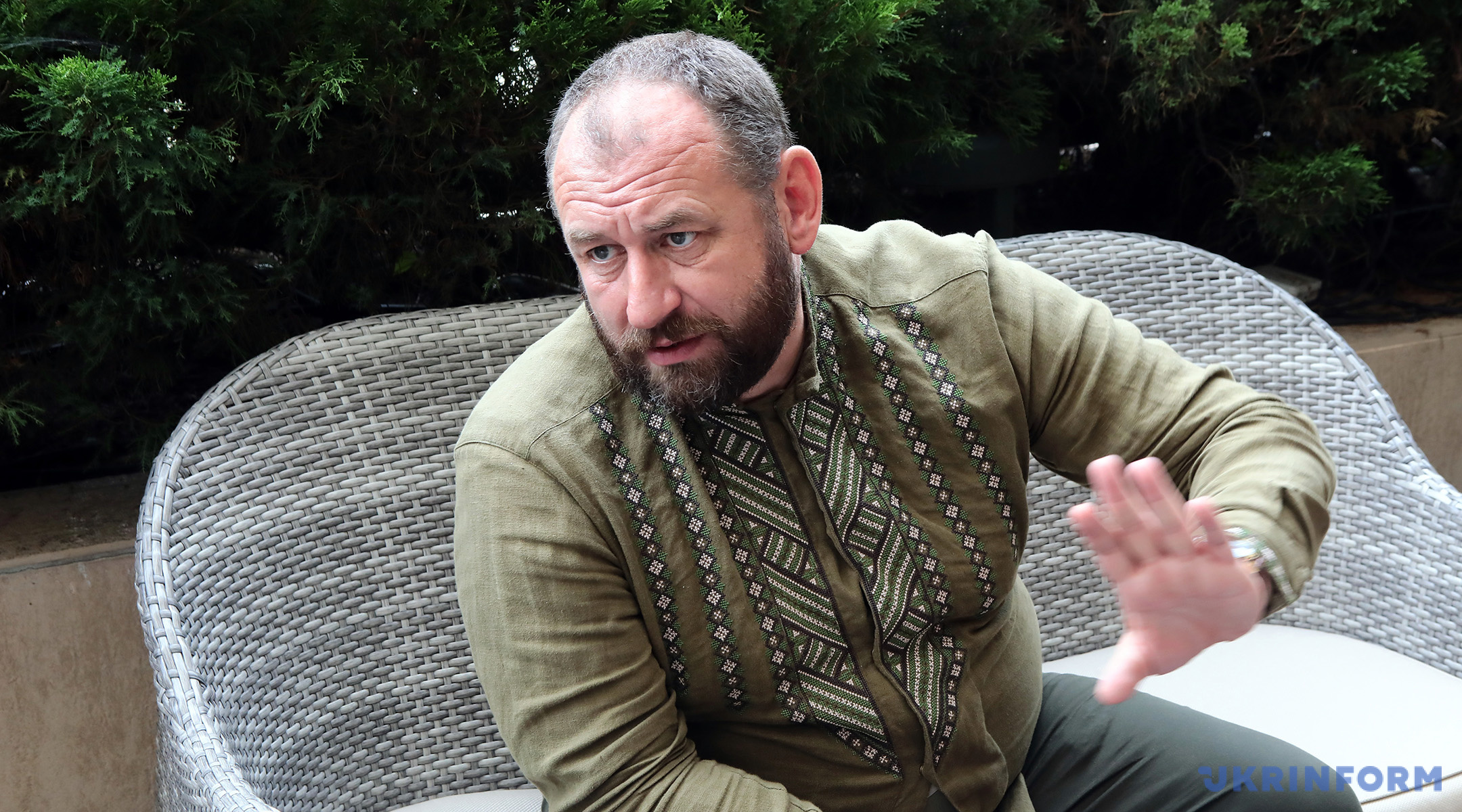
OFFICIAL STATISTICS SHOW TRADE GROWTH, BUT ACTUAL FIGURES ARE EVEN HIGHER
– What is the current level of economic cooperation between Ukraine and Hungary? Is it affected by certain political tensions between the countries?
– The cooperation keeps going successfully, most particularly in areas such as energy (electricity, petroleum products, and natural gas among other types of energy sources) and pharmaceuticals. Trade in agricultural produce is also significant.
Technically, some trade products remain under restrictions, but in actual fact they are present on the market anyway.
That is, official statistical data shows trade growth between our countries, but actual figures are even higher.
Furthermore, few people know about the humanitarian aid Hungary is providing to Ukraine. And we are talking about tens of millions of euros, coming particularly through the Hungarian Reformed Church among other charitable foundations.
The latest shipment included 2.5 thousand packages of specific medications requested by the Ukrainian military. The aid was provided by private philanthropists who asked their names not to be disclosed.
Hungarian philanthropists regularly provide aid, for example, generators for Sumy, Mykolaiv and Chernihiv regions, equipment and food products for orphanages and hospitals. And what is characteristic is that they do not seek media publicity in either Hungary nor Ukraine.
– Thus, Hungarian society is not as critical towards Ukraine as Hungarian politicians, isn’t it?
– Let me give just one example — not the only one but highly illustrative, so as not to return to the topic a second time. Such examples are numbered in hundreds, if not thousands.
Recently, a misfortunate event occurred near the small town of Kunszentmarton: a bus carrying Ukrainian children going to a dance festival overturned.
How quickly and cohesively everything was organized by local residents, police, and services is simply amazing.
That same evening, almost all the children were home – fed, watered, examined by doctors. They were quickly taken to hospitals and administered medical aid. I was there. All the documents were processed very quickly.
Even the men who drove the bus returned to Ukraine the same day.
The border was opened, procedures were simplified, the whole city came together, helped, and dispersed.
So that you understand better – more than 90% of the city residents voted for Viktor Orban’s Fidesz party. I hope I answered your question.
CURRENT RELATIONS BETWEEN OUR COUNTRIES ARE SEEMINGLY TENSE, BUT THE FACTS SAY OTHERWISE
– What’s your opinion as to whether Transcarpathian Hungarians can be a bridge between Ukraine and Hungary instead of a source of tension?
– They are already such a bridge. My father, for example, is ethnic Hungarian, and my mother is Ukrainian. I myself is naturally this “bridge”, just like many other mixed families in Transcarpathia.
– Maybe your position too is what makes you into this bridge?
– I had been one before. I mean educational activities, twinning relations between universities and cities.
The Hungarian community in Transcarpathia, indeed, has a deeper understanding of the Hungarian mentality and language, and that is why it often acts as a mediator. It is not only about cultural or educational initiatives, but also scientific, economic, microeconomic ties between the border regions.
These all are interpersonal and institutional ties that have existed regardless of the political situation.
For example, current relations between our states may be looking tense, but let’s look at the facts.
On April 8, Velyka Palad – Nagygodosh, a new international automobile checkpoint began operations in Transcarpathia. Now tell me any other neighboring country on whose border Ukraine has launched a new checkpoint in the last year? It’s not Poland, not Slovakia, nor Moldova – it’s only Hungary.
Other examples include the construction of a grain hub on the border and the laying of a European-standard railway track between Chop and Uzhhorod. Logistics have already been set up – there is an airport in Debrecen nearby, and Budapest has actually become a transport hub.
In the territorial communities of Bucha and Borodyanka, with sponsorship from Hungarian partners, there have been launched a children’s day care center, an administrative service center and a school that will be ready to welcome students on September 1.
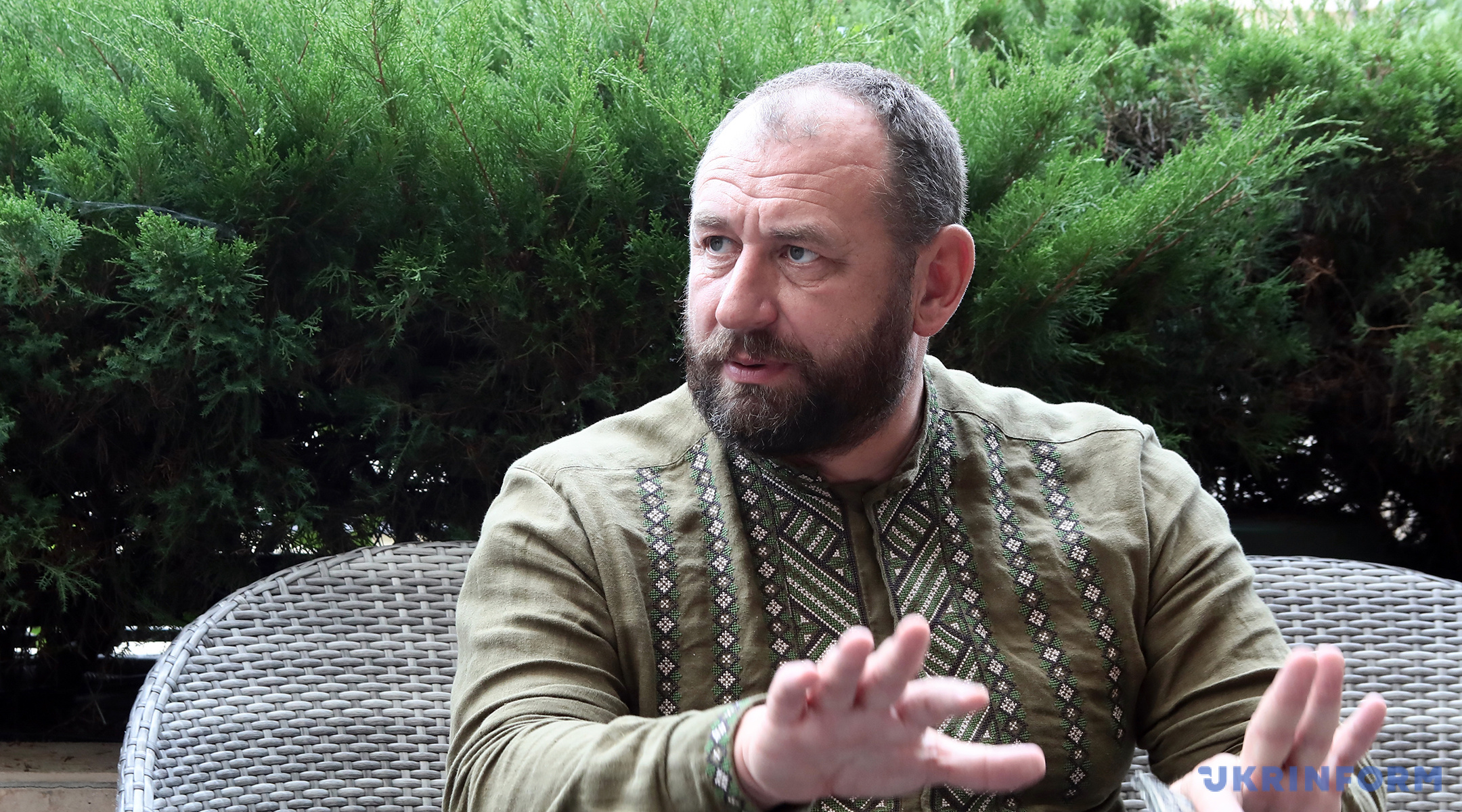
MULTIPLE CITIZENSHIP LAW WOULD HELP SOLVE THE PROBLEM WITH UKRAINIAN CITIZENS HOLDING HUNGARIAN PASSPORTS
– A few years ago, you spoke out in favor of introducing multiple citizenship for Ukrainians after the war ends. This legislation has already been adopted. What does the new legislation give to the Hungarians residing in Ukraine?
– It gives those who once renounced Ukrainian citizenship the opportunity to restore ties with their relatives, return to their territorial community, and feel part of Ukrainian society again.
Today, the Ukrainian passport has become a truly cool passport. Believe me, it will become even more prestigious over time. Many people who previously had doubts or concerns have now breathed a sigh of relief.
Indeed, each passport comes not only with rights, but also with responsibilities, in particular the ones related to military service. These are the challenges of today. But in the future, it will be a source of great pride.
Moreover, the new legislation on multiple citizenship enables solving the problem of Hungarian passports for the citizens of Ukraine who are ethnic Hungarians and reside in compact communities primarily in the Transcarpathian region.
I WOULD SAY THE SAME WORDS TO ORBAN – THAT I AM LOOKING FORWARD TO MEETING HIM
– In an interview with the Hungarian media two years ago, you, when asked what you would say to Viktor Orban during the first meeting, answered: “I would invite him for a walk in Székesfehérvár. We will have a lot to tell each other.” How would you answer this question now?
– I would repeat the same words – that I am looking forward to meeting him.
– Is Orban aware of this desire of yours? Did you tell it to him?
– There is about the so-called one-hundred-day rule. I took office recently. First, I assessed the situation. After all, I was in lead of a company in the war: reconnaissance comes first, followed by setting up logistics, and then actions.
– Have you already “sent a scout”?
– (Laughs) I myself can go explore. And I will go. I definitely must get through.
As long as I am alive, as long as I am a diplomat, I will knock until the end, until they hear me.
– So, you would tell the Hungarian prime minister the same words you wanted to tell him two years ago?
– Yes, of course. This is his hometown, he knows it best. His memories, certain nostalgic moments are there.
Can you imagine a Ukrainian diplomat walking with Orbán around Székesfehérvár, and how the Ukrainian media will cover it?
– Not yet. But you go, and we will prepare. And finally, I would like to ask about your impressions of diplomatic service over the past four months. You are not a career diplomat. What do you like about diplomatic work, and what, let’s say, do you not really like?
– A diplomat is the face of the entire Ukrainian people in a foreign country, and diplomacy is a very delicate matter. A diplomat is constantly under tension, because he constantly represents and protects the national interests of his state.
I was fighting at the front for two years, and I want just to live in peace. But the President entrusted me, and for me it is an honor to represent Ukraine and defend my state not at the front, but in the international arena.
– At which of the fronts is it harder: there, on the front line, or here, at the diplomatic front?
– Definitely at the diplomatic front. Because when on the front line, you know where the enemy is, feel your comrades beside you.
– Do you miss teaching?
– Very much. Because that is what I was doing for 31 years, and got the title of professor.
Nadiya Yurchenko, Kyiv
Photo: Volodymyr Tarasov

